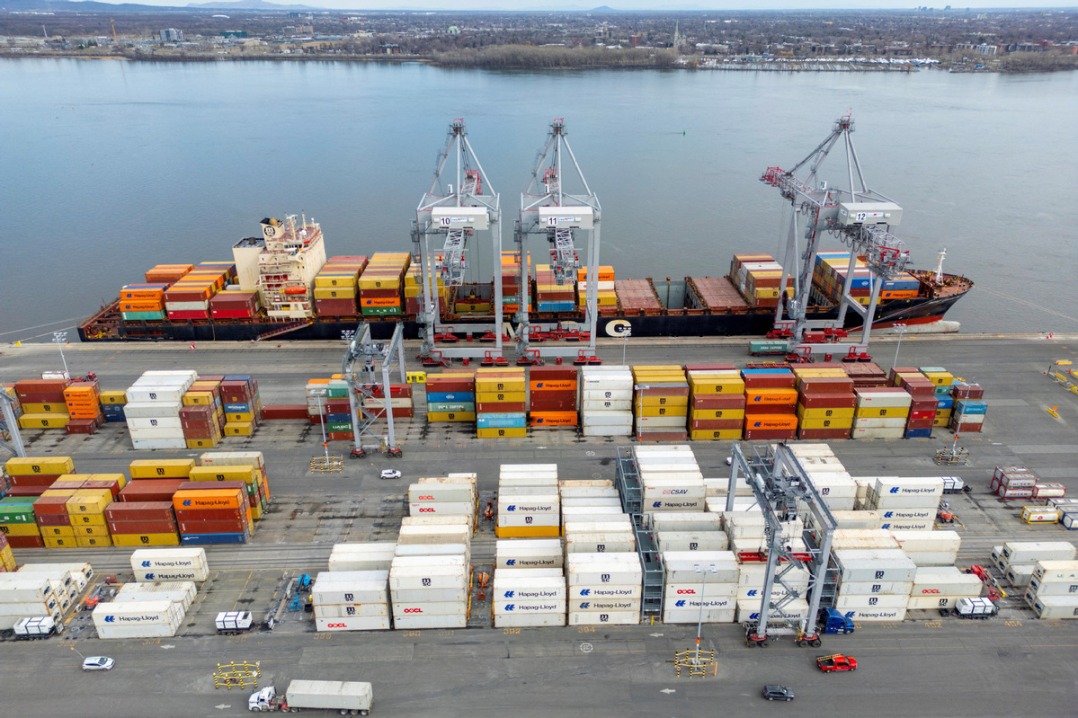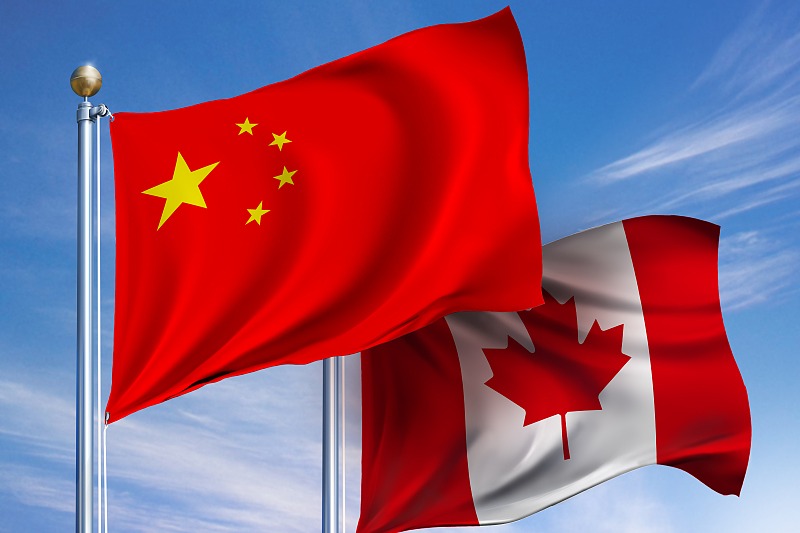Canada caught between US protectionism and China opportunity

As the United States moves ahead with its "Big Beautiful Bill," Canadian experts say the legislation could hurt Canada's economy, but also create new opportunities for cooperation with China.
"There's a number of things in that 'Big Beautiful Bill' that could impact Canada," said Mahmood Nanji, a policy fellow at Western University's Ivey Business School and a former associate deputy minister of finance for Ontario.
"If the Trump administration makes significant changes to corporate and individual tax rates, there are two potential consequences: companies may relocate production to the US, and there may be Canadian talent moving south," he told China Daily.
While the full economic consequences of the bill remain uncertain, Nanji said the risks to Canada are tangible.
"For businesses that are located in Canada and exporting to the United States, obviously there will be an impact," he said, pointing to sectors already affected by US tariffs on steel, aluminum and copper.
Beyond manufacturing, the bill's proposed cuts to social programs like Medicaid also worry Nanji.
"The last report I read said almost 12 million Americans will now not have access to health care. That will have consequences for Canada and for the rest of the world," he said.
Nanji said the future of the Canada-US trade relationship is now in question. "Will Canada be able to achieve a comprehensive free trade agreement with the US like it did before Trump came into power?" he said.
He also raised doubts about whether a new agreement would be honored in practice. "Even when you have a trade agreement, will Donald Trump actually respect it through the term of his office?" he said.
Nanji noted that Trump's attention has so far been centered on domestic politics.
"He hadn't focused much on trade until recently," he said. "The Big Beautiful Bill is the heart of his mandate. It was always about repatriating jobs, bringing investments back, reducing taxes and cutting government waste."
Still, Nanji remains skeptical of the bill's long-term benefits. "I'm not quite sure that it's going to have the economic dividends we're being promised," he said.
Despite the risks, Nanji sees opportunity in the shifting geopolitical landscape — particularly in green technology.
"Canada is going to have to revisit its position with China on a number of fronts," he said. "Its entire trade strategy with China needs to change, because the relationship with the United States has changed. There's a need to diversify."
On electric vehicles, he said he believes Canada should reexamine its approach.
"This notion about taxing Chinese vehicles at 100 percent — I think that's going to have to be revisited.
"Canada is still wanting to become a significant EV manufacturer. Whether it's EVs or clean tech, the relationship with China will definitely change," he said.
Nanji pointed to a recent example of this pragmatism: "British Columbia just bought a number of ferries from China. The Chinese company was the most competitive and the most cost-efficient," he said.
Nanji also sees potential in critical minerals cooperation. "Canada has made it very clear that it's looking for investment in that area.
"I think Canada has to be open to Chinese investment in order to fully maximize its critical minerals industry," he said.
"We need to ensure two things: Canada's national interests and security, but also that our resources can be sold internationally to trading partners like China," he said.
Beyond EVs and mining, Nanji highlighted infrastructure as another sector ripe for collaboration.
"China has built a lot of infrastructure in a very short period of time," he said. "Since 2008, it has built more than 40,000 kilometers of high-speed rail. They've also developed the next generation of trains."
With diplomatic tensions between Canada and China showing early signs of thawing, one Canadian policy analyst says the two countries must seize the opportunity to rebuild trust and explore practical avenues of cooperation.
Jeff Mahon, former deputy director for Greater China at Global Affairs Canada, said the election of Canadian Prime Minister Mark Carney offers Canada a renewed opportunity to engage with China, especially amid shifting global dynamics.
"The timing is critical because Canada is seeking to grow and diversify its trade relationships amidst US market access uncertainty," he told China Daily.
"The recent phone call between leaders was a needed first step to improve bilateral relations," he said. "Importantly, the discussion resulted in agreement to reconvene the Canada-China Joint Economic and Trade Commission (JETC)."
Still, Mahon noted that cooperation must be approached with realistic expectations. "While there is positive momentum, both Canada and China must be clear-eyed that practical cooperation has its limits.
"We're only just emerging from a low point in bilateral relations and trust on both sides needs to be rebuilt," he said.
He sees the immediate priority as fostering honest dialogue: "The goal should be to use JETC to engage in candid discussion to foster understanding and respect that can help identify a mutually beneficial compromise."
Mahon also pointed out that Canada's strategic space is constrained by its economic ties to the United States. "The most important constraint is Canada's ongoing economic and security negotiations with the United States," he said.
"The US is now changing the terms of market access, and for some sectors — such as automotives, steel and aluminum — the cost may effectively be a common tariff policy," he said.
To navigate these constraints, Mahon said a focused approach to bilateral economic ties is needed. "Canada and China should pursue economic cooperation that supports high-quality development and jobs in both countries," he said.
"This would require carefully managing market access to maximize benefits to both countries while minimizing adverse effects," he said.
Mahon said he believes Canada should focus on strategic investment partnerships. "The Canadian government should clearly signal to China that its world leading companies are welcome to invest and participate in Canada's automotive supply chain.
"Greater clarity for Chinese investors should then be matched by removing China's tariffs on Canadian agricultural exports," he proposed.
Beyond resolving immediate disputes, Mahon said there's a need for a more durable model of engagement.
"It's of critical importance that both countries recognize that new principles are needed to govern a sustainable and mutually beneficial relationship.
"This can be achieved if both countries seek a flexible arrangement that is attuned to both domestic circumstances and the broader geopolitical environment," he said.


































